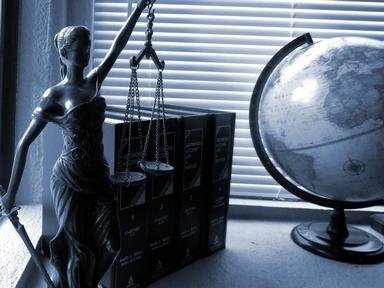Quiz Answer Key and Fun Facts
1. In 622 in Arabia, the Constitution of Medina established freedom of worship for non-Muslims in exchange for what?
2. The United Nations General Assembly adopted the Universal Declaration of Human Rights in 1948. In which city did this take place?
3. The 1789 Declaration of the Rights of Man and of the Citizen was the major document associated with which great European revolution?
4. What is the difference between natural rights and legal rights?
5. Is it possible for a group to have rights that take precedence over a member of that group?
6. Which nation's great document contains the words "...all men are created equal...with certain unalienable Rights...Life, Liberty, and the pursuit of Happiness"?
7. Back in ye olde England, a cat ragman certainly put the king in his place in no uncertain terms. What anagram have I hidden in the above sentence?
8. Political persuasion can have much to do with how the rights of the individual are interpreted. Which political belief system believes that goods, services, income, housing and health care etc are the rights of everyone equally?
9. What is the name given to the 1982 Canadian equivalent of the Bill of Rights?
10. In the year 2000, one of the most recent documents concerning human rights was the Charter of Fundamental Rights of the European Union. Drafted in 2000, did it come into effect that same year?
Source: Author
Creedy
This quiz was reviewed by FunTrivia editor
stedman before going online.
Any errors found in FunTrivia content are routinely corrected through our feedback system.


